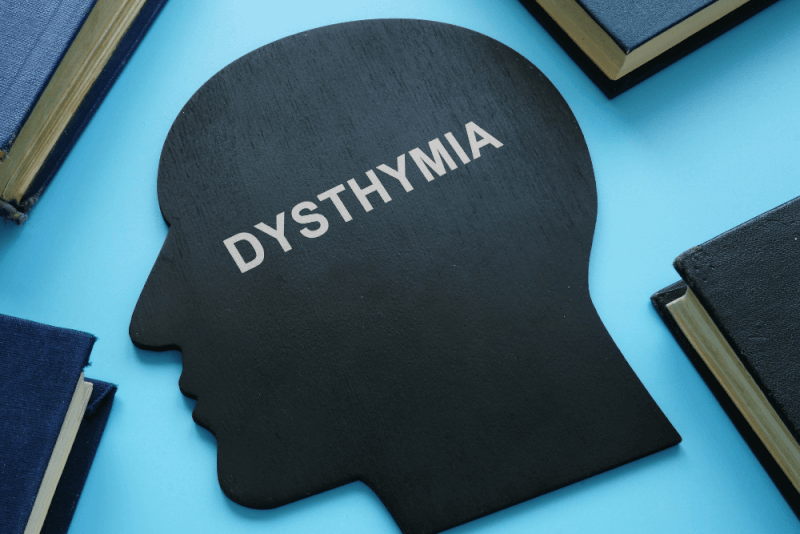What is Family and Couples Therapy?
Family therapy is a form of psychotherapy focused on improving relationships and behaviors within the family. A family unit consists of a group of people who care about each other.
The group involved in family therapy may include parents, guardians, their children, siblings, grandparents, aunts, uncles, friends, relatives, caregivers, and other loved ones in different combinations. Family and couples therapy can help in the following situations.
- Adjusting to a new life change or medical condition
- Changes and challenges that come with aging
- Death and grief
- Parent-child conflict
- Sibling conflict
Mental health professionals use family therapy to help treat specific mental health or behavioral conditions of a person within the family unit.
For example, family therapy can assist in the treatment of anorexia for one member of the family or multiple members. Family therapy is conducted by a trained and licensed mental health professional with expertise in working with families, such as a psychologist, therapist, or counselor.
It provides support, education, and guidance to families to help improve functioning and well-being. There are several different types of therapy that vary widely in terms of duration, techniques, and treatment goals.
How does the Family and Couples Therapy process work?
Family therapy is an evidence-based treatment that relies on theory and skill-based discussions. It provides a supportive, non-judgmental, and safe environment that allows the family to talk openly with a mental health professional. The professionals are objective and specially trained to help families with their issues.
Under the guidance of a mental health professional, efforts are made to improve interaction and communication between family members. Steps are taken to incorporate healthy behavior to improve the functioning and well-being of the family. Family therapy can also help understand and treat a family member's mental health or behavioral condition.
Family therapists can:
- Ask each family member about their concerns, difficulties, and hopes related to family therapy
- Encourage everyone to talk and listen to each other
- Clarify everyone's words and feelings to help family members understand each other
- Help family members understand the impact of their words and actions
- Explore how the family can work together to make changes
- Recommend various strategies to change responsible behaviors and patterns
Since talking is a core part of family therapy, it is crucial for all family members to actively participate in the sessions. Trust, relationship, and effective collaboration with the therapist are key to benefiting from therapy.
The frequency and number of sessions vary from family to family. Some families may need only a few sessions, while others may need several months or longer. Depending on the family's situation, therapists may recommend individual or group sessions with family members.
Types of Family Therapy
Therapists use various types of family therapy, and many professionals specialize in specific types. The choice of therapy depends on the family's unique needs and circumstances.
Therapists may combine elements from different therapeutic approaches to best meet the family's needs. Some types of family therapy include:
Functional Family Therapy
This type of therapy helps families with children who have behavioral problems. It aims to improve family communication and parenting skills by evaluating the family dynamics contributing to the child's behavior.
Marriage Counseling
In marriage counseling, spouses or romantic partners participate in sessions. Special techniques are used to help couples identify and work through their issues. Problems may include communication, child-rearing, financial matters, understanding health conditions, and more.
Strategic Family Therapy
This is a short-term family therapy focused on making positive structural and behavioral changes in the family environment. It is used for families with children who have behavioral issues, based on the principle that the family plays the most crucial role in the child's life and development.
Structural Family Therapy
This therapy addresses internal relationships, boundaries, and hierarchy within the family structure. It focuses on direct interaction between family members to create positive change. The foundation of structural family therapy is to help families explore alternative patterns of responsible relationships under a therapist's guidance.
Systemic Family Therapy
Systemic family therapy addresses the family's issues in different contexts. For example, a therapist evaluates how a family member functions as a partner in a romantic relationship, as a parent, and as a child to their parents. This approach acknowledges that context is crucial for psychological development and emotional health.
Techniques and Methods in Family and Couples Therapy
Family and couples therapy uses techniques and methods tailored to the needs of the individuals involved. After identifying the needs of families and couples, the following techniques can be applied:
Reflective Listening
Reflective listening is a specific method that can benefit couples and families working on communication skills. In this method, everyone takes turns being an active listener, allowing the speaker to express themselves freely, thus significantly improving communication in a healthy and safe environment.
Narrative Therapy
In this therapy, clients define their relationship issues in narrative form, a very specific therapeutic technique. Clients are then encouraged to rewrite their stories. The goal of narrative therapy is to help clients see that a single story does not encompass their entire experience. Narrative therapy is particularly useful when all family members feel responsible, and for those who feel they deserve a failing relationship due to personal failures.
Solution-Focused Therapy
Solution-focused therapy is used when family members have a specific issue they want to work on. This approach is applied while working towards a short-term goal, helping family members find solutions to relationship problems rather than dwelling on issues.
The Gottman Method
This method teaches skills to help family members understand each other more deeply, even during conflicts. It focuses on enhancing intimacy and friendship among family members while developing specific problem-solving skills. Traditionally, take-home educational materials, live workshops, and homework are used, but many therapists also use adapted techniques in private sessions with couples.
Imago Relationship Therapy
Imago relationship therapy helps couples identify childhood experiences that affect their adult relationships. It particularly aids in uncovering the causes of attachment issues or relationship anxieties. Through extensive exploration of childhood traumas, couples can become more understanding and empathetic towards each other.
Emotionally Focused Therapy
Emotionally focused therapies are effective techniques for couples counseling. They help identify destructive patterns that begin to interfere with attachments in a relationship, ultimately preventing bonding between two people. By focusing on patterns and behaviors that create disconnection, emotionally focused therapies help individuals start forming more positive connections.
Exercises Used in Family and Couples Therapy
Therapies are strengthened with various exercises and activities designed to encourage interventions, understanding, deeper connections, forgiveness, or other issues that the relationship is trying to overcome.
Identifying Emotions
Disconnections in relationships often stem from the inability to quickly and effectively identify emotions. Learning how to do this in a safe space, like therapy, helps express emotions more productively when needed.
Focusing on Solutions
Focusing on positive aspects and redirecting negative behaviors to find solutions is one of the most effective ways to apply solution-focused patterns that can ultimately improve the relationship.
Exploring the Past
It is not uncommon for the past to haunt future relationships. Trauma experienced, fears that cannot be let go, negative behavior patterns developed, and even injuries that make trust difficult can affect how family members treat each other. Identifying unhealthy patterns created by the past can help start healing and form healthier relationships both now and in the future.
Building Harmony
Harmony exercises help reinforce positive aspects to cope with difficult questions or conversations. This is often done by using memories and feelings from the beginning of the relationship, which is usually a happy time, or by connecting on a deeper level to strengthen the relationship and overcome tough times.
Expressing Gratitude
Expressing gratitude is one of the effective ways to improve mood and keep things in perspective. Expressing gratitude increases the hormone oxytocin, which helps reduce stress and create a sense of calm. Encouraging family members to regularly express gratitude to each other and openly share what they are grateful for helps build a bond based on trust, appreciation, and mutual respect.
Recognizing the Love Language
Identifying the love language of family members can provide a deeper understanding of what is needed to motivate each other. Acting on this knowledge can ensure that the love given is understood by the other party. The five love languages include:
- Receiving gifts
- Words of affirmation
- Acts of service
- Quality time
- Physical touch
When to Seek Couples Therapy?
Families seek family therapy for various reasons. Some of the issues that family therapy can help address include:
- Tense relationships between family members
- Stress
- Anger
- Communication issues
- Physical or emotional trauma
- Coping with an acute or chronic illness in a family member
- Death of a loved one and grief
- Divorce or romantic relationship issues
- Coping with sudden changes like unemployment, moving, or incarceration
Additionally, family therapy can be beneficial if a family member has any of the following mental health conditions:
- Anxiety disorders, such as obsessive-compulsive disorder
- Eating disorders, such as anorexia
- Mood disorders, such as bipolar disorder and depression
- Personality disorders, such as borderline personality disorder
- Schizophrenia
- Substance abuse
Family therapy can also be sought for behavioral issues in children within the family. These issues include:
- Behavioral disorders
- Disruptive mood dysregulation disorder
- Oppositional defiant disorder
- Autism spectrum disorder
- Attention deficit hyperactivity disorder
Advantages of Couples Therapy
Various research studies on family therapy have shown that it is effective in treating mental and emotional conditions and health issues such as substance abuse, depression, and obesity in adolescents.
Researchers also report significant improvements in relationships and conflicts with family members through family therapy. These improvements within the family can also lead to better functioning at work or school.
Other changes seen in families and family members after participating in family therapy include:
- Nearly 90% of people reported improvements in their emotional health.
- About 66% of people who participated in therapy reported improvements in their overall physical health.
- In parent-child cases, about 73% of parents reported improvements in their children's behavior.
Risks of Family Therapy
Family therapy is not suitable for everyone. Reluctance of one or more members to participate in the sessions can increase conflict within the family. Family members may also feel more upset during therapy. However, therapists help to overcome these feelings.







